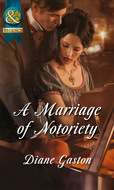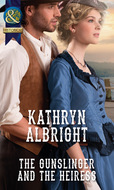Książki nie można pobrać jako pliku, ale można ją czytać w naszej aplikacji lub online na stronie.
Czytaj książkę: «Bachelor Duke»
“Good heavens, a bluestocking!”
“That, sir, is better than being a milksop, dependent on the generosity or otherwise of a man who can give it or withhold it at his pleasure.”
James had a sudden vision of what it might be like to be a young lady alone in the world. He was used to the ladies of the ton, or demi-reps who flouted convention. But the woman who faced him now was neither. He wished he had not been so sharp with her, but he did not know how to retrieve the situation.
MARY NICHOLS
Born in Singapore, Mary Nichols came to England when she was three, and has spent most of her life in different parts of East Anglia. She has been a radiographer, school secretary, information officer and industrial editor, as well as a writer. She has three grown children and four grandchildren.
Bachelor Duke
Mary Nichols
MILLS & BOON
Before you start reading, why not sign up?
Thank you for downloading this Mills & Boon book. If you want to hear about exclusive discounts, special offers and competitions, sign up to our email newsletter today!
Or simply visit
Mills & Boon emails are completely free to receive and you can unsubscribe at any time via the link in any email we send you.
Contents
Chapter One
Chapter Two
Chapter Three
Chapter Four
Chapter Five
Chapter Six
Chapter Seven
Chapter Eight
Chapter Nine
Chapter Ten
Chapter Eleven
Chapter Twelve
Chapter One
April 1814
The slight breeze that played along the shaded balcony took the heat from the afternoon sun and allowed the scent of bougainvillaea and orange flowers to drift past Sophie and mask the less pleasant aromas from the street below. But she was unaware of odours, either pleasant or unpleasant, as she gazed over the pink tiled roofs to the glittering blue sea of the Bay of Naples. There were more things on her mind than pleasing views and contrasting scents. She was in a dilemma of such magnitude, she did not know how she was going to come about. Her father had died, having ruined his health with wine and spirits, and followed her darling hard-used mother to the grave; now she was alone in a foreign country. Twenty-one years old, unmarried, with no close friends and no relatives who were prepared to acknowledge her, and, to top it all, the rent of this tiny villa was due at the end of the week.
The knock at the door had to be repeated before she heard it; by that time the lady doing the knocking had opened it and was tripping into the room. ‘Sophie, my dear, such news, such wonderful news!’ The middle-aged Lady Myers was short and plump, dressed in a light muslin gown more fitting to someone of Sophie’s years. Her hair, under an enormous bonnet intended to protect her complexion from the sun, was dyed black as a raven’s wing. But she had kind hazel eyes and a warm smile. Seeing her, Sophie realised she had been wrong about having no friends; she did have one. ‘The war is over. Napoleon Bonaparte has capitulated. The allies are in Paris. We can all go home.’
‘Home,’ Sophie repeated. Where was home? In the last ten years, she had lived for a time in France, a strange place of contrasts since the revolution; in Spa in Belgium; in Chamonix in Switzerland, where the sweet mountain air and wonderful landscape had served to raise her mother’s spirits for a short time until they were forced to flee again. Oh, Papa never admitted they were running away, but that is what it was; a vain bid to escape his creditors. Living abroad was cheaper than in England and they might have managed tolerably well but for her father’s vice, which pursued them wherever they went.
After Switzerland there was Vienna, where she and her mother spent hours exploring and her father filled his time with gambling among other expatriates, convinced he was on the verge of the ‘big win’ and they would once more be in funds and able to look their friends in the eye, not to mention hoteliers, landladies and mantua makers. The coup never came and Papa was the only one surprised at that, but it meant that they could no longer pay their hotel bill and had to make a hurried exit in the middle of the night, which the fifteen-year-old Sophie had found exciting, but which did her mother’s nerves no good at all. They went to Venice, then Milan, Turin, Florence and Rome in turn, always one jump ahead of the dunners, until two years ago they had arrived in Naples. By then her mother was seriously ill, but she had been cheered to discover Lady Myers living close by. ‘She came to live near us when she married Lord Myers and we became friends,’ Mama had told her. ‘Lord Myers was in the diplomatic service and they were always on the move, and later so were we and we lost touch. Now we can renew our acquaintance.’
Their small entourage of valet, footman and maid had already gone in order to save paying wages. Now they were forced to stay in one place. The coachman had gone too, and the sale of the coach and horses and most of her mother’s jewellery had kept them going for a time, particularly as Papa, overcome by guilt, swore he had turned over a new leaf. But it was too little too late. As far as Mama was concerned, they were stranded in a foreign country in the middle of a war with no hope of returning to England; though Papa continued to maintain he would soon set all to rights, Mama gave up believing it and soon gave up on life.
Lord Langford’s grief at his wife’s death had been astonishing to behold. He wept for days, wallowing in remorse and self-loathing, asking Sophie for her forgiveness and drinking copious amounts of wine and cognac to deaden his pain. Sophie had been numb with grief herself and had no comfort to offer him. She went about in a daze, knowing it was no good relying on him to provide for them and she would have to do something herself if they were not to starve.
A month before her twentieth birthday she had become the breadwinner, teaching Italian children English and conducting foreign tourists about the city. Few of them were English because the war had put a stop to sending young men on the Grand Tour, but as Sophie had a keen ear for languages she was able to act as guide in French, German or Italian. Now Papa had died, and violently too, making his drunken way home one night, and Lady Myers talked of going home!
‘Yes,’ her ladyship said, concerned by Sophie’s long silence, but then the poor girl had only recently lost her papa so it was not to be wondered at that she was a little distracted. She was sitting there in a dowdy black dress, her dark hair tied roughly back with a ribbon, but in spite of that the chit had a natural grace. Her complexion was a little more tanned than fashion dictated, but she had good bones and her brown eyes were uncommonly lustrous. ‘Home to England.’
‘It is good news, of course, but I cannot go.’
‘Why ever not? You cannot possibly stay here alone. Surely you have relatives in England who will give you a home? Lord Langford…’
Sophie gave a bitter laugh and bent to pick up a crumpled ball of paper from the floor where she had flung it a few minutes before. ‘You mean my father’s brother? I wrote out of courtesy to tell him of Papa’s demise, though I have no doubt the lawyers will have told him immediately he had inherited the title.’
‘And?’
She smoothed out the paper. ‘This is his reply. He repudiates me.’
‘But that is wicked! You were only a child when you left England and none of your father’s troubles was your fault. Are you sure?’
‘Oh, he leaves me in no doubt. He says if my father had not been trapped into a disastrous marriage he would never have been a gambler. My uncle says if I think to throw myself upon his generosity, I may think again, and as for stooping so far as to work among foreigners, it has undoubtedly coarsened me and made me unfit for polite company.’ It was said in a flat tone that did not disguise the bitterness she felt. ‘He requests me not to write to him again.’
‘My dear child, that is appalling. I never heard the like. I have a good mind to write to him myself.’
‘Oh, please do not do that. It would mortify me. I have never begged and I will not do so now. I shall carry on doing the work I have been doing. Now the war is over, English people will be travelling again.’
‘No doubt they will, but you can be sure the beau monde will not ask you to show them the sights. It might have served while your papa was alive, but a young lady living alone would be frowned upon as outside the bounds of decent society. No, Sophie, that is not to be countenanced.’
Sophie had not thought of that, but her ladyship’s words had the ring of truth, so what was she to do? Teaching English alone brought in no more than a pittance. ‘I’ll take up writing,’ she said after a moment’s thought. ‘I will write a book about my travels. Mama and I spent hours and hours exploring everywhere we went and she encouraged me to make notes, not only about the places and buildings we visited, but the customs and the people. I could write about those.’
‘I have no doubt of it, but how will you live while your book is in the writing?’ She paused, but, when Sophie did not vouchsafe an answer, went on. ‘Come back to England with us. Surely there is someone you can approach. What about your mother’s relatives?’
‘Mama was a Dersingham, niece of the third Duke of Belfont, but he was quite old when we left England and I am sure Mama said he had died. He had no son, and, as Mama’s father, the next in line had predeceased him, their younger brother, Henry, became the heir. That would be my great-uncle, would it not?’
‘Yes, but surely he would give you a home?’
‘I never met him and the connection is so distant…’
‘Sophie,’ her ladyship said firmly. ‘You have no choice but to appeal to him. I cannot believe you will be turned away…’
‘The Dersinghams did not approve of the marriage either. I suppose they knew what Papa was like. But he could be very charming when he chose and Mama loved him…’
‘None of which has anything to do with you.’ Her ladyship paused. ‘I’ll tell you what we will do. You shall come and stay with me and Lord Myers until we can arrange to go home, then you shall come with us and we will take you to his Grace. And if that gentleman is so insensitive as to turn you away, then I will undertake to launch you into Society myself and find you a husband.’
‘I never thought of marriage, my lady…’ How could she have done so? She had been too busy nursing her mother, then taking care of her father. In any case, who would marry the penniless daughter of a compulsive gambler who could not rustle up a penny piece for a dowry?
‘Well, it is about time you did. I shall not take no for an answer. Whatever would people think of me if I were to go home to England and leave the daughter of my dear friend to fend for herself?’
‘Oh, Lady Myers, you are so good to me, I cannot think how I shall repay you.’ She laughed suddenly, the first time she had laughed with genuine amusement in the month since her father’s death. ‘I will become rich and famous from my book and then I will see you are rewarded.’
‘If that comes to pass, then I shall accept payment in the spirit it is given, but we will not think of that now. I shall go home and send my carriage back for you, so begin packing at once. The sooner you are safely under my wing, the better.’
She rushed off, leaving Sophie smiling. Her ladyship was indeed like a plump mother hen, but Sophie was not at all sure she would like being under her wing. She was, after all, an independent woman used to going out and about on her own, not a naïve schoolgirl, but on the other hand, with Lady Myers she would not feel so bereft and lonely, even if the price of that was to suffer her ladyship’s clucking.
Packing did not take long; she had so few possessions. Her mother’s gowns had been sold long ago, and after Papa’s funeral she had disposed of his belongings in order to pay the rent; there was just enough left to cover what was still owing. The only thing of value she had refused to part with was a pearl necklace, given to her mother by her own father on her come-out and in its turn given to Sophie. She would starve before she sold that.
She had half a dozen serviceable gowns in lightweight materials, which was all she needed in the heat of Naples; a few petticoats, chemises and hose; two pairs of shoes and a pair of boots. She had two bonnets, one velvet and one straw; a light pelisse and a warm cloak with a hood. Heaped on her bed, waiting to be packed into her trunk, the collection looked pitifully inadequate. If her memory served her correctly, England was a cold place, even in summer. And the gown she was presently wearing was the only one she had in black. She had bought it to go into mourning for her mother nearly two years before and had brought it out again on her father’s demise. But if she were honest with herself, she could not mourn him as she ought and it seemed hypocritical to invest what little money she had in black clothes.
Taking a deep breath, she folded everything and put it into the trunk, added the jewel case containing the pearls, some toiletries, a brush and comb, a tiny miniature of her mother and her travel notes, and slammed down the lid. The whole process had taken less than half an hour. When she thought of the mountains of luggage they had brought with them when they first came out to the continent, luggage that needed a second coach to transport, it made her shrivel up with shame. She sat on the trunk and looked about the bare room. She was sitting on the sum total of her life. The only baggage she had was her memories. And the future? What did that hold?
Suddenly she straightened her back and lifted her chin. She had nothing to be ashamed of and would not go about looking cowed. She had had an excellent education, one that many a young man might envy, thanks to her mother, who had been something of a blue stocking, and she would put it to good use. If her great-uncle was good enough to offer her a roof over her head, that was all she would ask of him. She would use her brain to earn a living. And if he did not? Then there was nothing else for it, she must accept the help offered by Lady Myers and hope to be able to repay her. As for finding a husband, that idea was laughable. She did not want a husband, if husbands were all like her father.
Lord Langford had been an inveterate gambler and a dissolute soak, as well as a charmer. He would tell the most outrageous lies about how his fortune had been delayed in reaching him; or he had had his money bags stolen; or the lawyers were holding up his inheritance over a technicality, which would soon be resolved; or he had been cheated by a scoundrel, none of which was true, but it was said with a charming smile, an air of apology, even a false tear or two, and somehow he would find someone to believe him and lend him money. Sophie had made up her mind she would never put her trust in a man, though she had once loved her father. He had been fun when she was a small child, giving her little treats when he was in funds, taking her out riding on her little pony, talking to her of things way above the heads of most children of her age, which she soaked up like a sponge. Surely an education such as she had enjoyed must stand her in good stead?
Before she left she meant to say goodbye to her parents and so she put on her straw bonnet, tied with black ribbons in deference to her state of mourning, and set off for the nearby church where so many British people were buried: soldiers, sailors, diplomats who had died while on a tour of duty, tourists who had succumbed to the climate or to sickness, exiles like her parents. She knelt a little while by their graves, murmuring tearful goodbyes, then stood up and consciously straightened her shoulders, ready to meet her future with courage.
They should not miss the opportunity to go to Paris, Lord Myers maintained over supper the evening Sophie arrived, when they were discussing the best way to reach England. ‘The Comte de Provence has been declared King Louis XVIII and has arrived in Paris to take up his throne; according to my informant, the whole world is flocking there in his wake, all eagerly awaiting the arrival of the Duke of Wellington.’ The British commander had won the last great battle of the campaign by taking Toulouse and had been honoured with a dukedom for it. He was expected to stop in Paris to pay his respects to the new king and greet his ally Marshal Blücher before returning home. ‘We could be there, when he is there. What do you say, Alicia, my dear?’
He was only slightly taller than his wife, a little more rotund than she was, with a round red face and pale whiskers. Sophie was unsure who wore the breeches, him or his wife, but they seemed to jolly each other along, being excessively polite to each other. ‘Why, I should like that very much,’ her ladyship said. ‘You know how I dislike the sea, especially in the Bay of Biscay.’ She gave a little shudder and turned to Sophie. ‘I shall never forget the voyage coming out. The ship nearly overturned and I was so unwell I thought my end had come.’
‘I am happy to do whatever you say,’ Sophie said.
‘Then I think we should set out as soon as possible, or we shall miss him,’ his lordship decided. ‘Lady wife, when can you be ready?’
‘Goodness, my lord, you should know me by now. I can be ready tomorrow if you so wish.’ She turned, laughing, to Sophie. ‘We moved so often when Lord Myers was in the diplomatic service I had it down to a fine art. Everything is labelled to match the chests and trunks, so that it is only a question of organising the servants while Lord Myers deals with the transport.’
‘I’ve done that,’ he said. ‘The bulk of the stuff will go by sea, we shall take only what is needed for our personal comfort. I noticed Miss Langford likes to travel light, which is very sensible of her.’
Sophie smiled. He was as kind as his wife to make excuses for her lack of baggage. ‘I need not unpack then. My only hesitation is because there has been no time to receive a reply to my letter to the Duke of Belfont.’
‘That is of no consequence, my dear,’ Lady Myers put in. ‘We have already agreed that you shall come to England with us, so it makes no difference what his reply is. We will deal with the Duke when we arrive.’
How did one deal with a duke? Sophie asked herself. Lady Myers was evidently not daunted by the prospect, but Sophie herself could not help wondering about him. He was obviously younger than his brother from whom he had inherited the title, but, even so, he must be in his sixties. Was he a crabby old man, or had age made him tolerant? She hoped the latter if he was to overcome the family’s antagonism towards the Langfords, of which she was one. If the reaction of her father’s brother was a yardstick of what she might expect, then she had a mountain to climb. Going home overland would delay the moment of truth and for that reason alone she was willing to fall in with Lord Myers’s plans. Besides, seeing Paris again and being able to compare it with the Paris of ten years before, and talking to the people, would provide more material for her book. She was beginning to set great store by the book.
Two days later they set out in his lordship’s coach, followed by another bearing his valet, a footman and her ladyship’s maid and their luggage. They were all hardened travellers so the discomfort of the journey, bad roads, unsavoury inns, baking sun and torrential rain were endured with fortitude. It took a week to cross into France and then the hazards were not so much natural as man-made. Napoleon might have abdicated and been exiled to the island of Elba, but he was far from discredited with his people. Bands of marauding soldiers with no one to lead them attacked travellers, shouting ‘Vive L’Empereur’ and ‘He will be back!’ It was only Sophie’s skill as a linguist that convinced them they were not the enemy, but friends who would rejoice at Bonaparte’s triumphant return. It was quite frightening at times, worse than being an alien in Italy, which was itself a conquered nation, and she was relieved when their carriage drew up outside the Hôtel de Luxembourg in Paris.
The city was so full it was almost impossible to move and if Lord Myers had not sent ahead to bespeak rooms, they would never have found a pillow on which to lay their heads. Their rooms were comfortable, but they were so tired it would not have mattered what they were like and Sophie slept soundly.
After breakfast the following day the two ladies, accompanied by her ladyship’s maid and the footman, set out on foot to explore the city while Lord Myers went off to call on the Duke of Wellington and to pay his respects to the new monarch, though how long the latter could hold on to his crown, Sophie was doubtful. He was no more popular with his subjects than the Regent was in England.
Although the city had been spared a battle it looked shabby and dirty, a state that was not improved by the mass of common soldiery, mostly Austrian and Prussian, who roamed the streets and lived in tented quarters in the parks, behaving like turkey cocks, mixing with the tourists who came in the thousands. The ladies were agog to see the fashions, rakes and dandies come to chance their arms either with the ladies or at cards; some had come to view the art treasures Napoleon had looted from the cities he occupied, some even to sample the food and wine, though how they expected that to be as good as before the war Sophie did not know.
Strolling down the wide boulevards and busy side streets, Sophie was startled by the contrast between the rich tourists and well-stocked shops and the abject poverty of the inhabitants who importuned them for alms or offered items for sale that Sophie, even in her own pocket-pinched state, would have consigned to the midden heap. ‘I do not feel at all comfortable,’ her ladyship said, as they were roughly pushed aside by an officer trying to control a mob bent on raiding a baker’s shop. ‘Let us go back to our hotel.’
It took them half an hour to battle their way through the throng and by that time both had had more than their fill of Paris. ‘Henry, I think we should set off for England at once,’ Lady Myers told her husband when he joined them for supper. ‘I have seen enough of France; besides, if we stay here, Sophie will miss half the Season…’
‘Oh, please do not take that into account,’ Sophie said. ‘I shall be content simply to have a roof over my head.’
‘Fustian! I undertook to bring you out and bring you out I shall. That is if Dersingham is so ungracious as to refuse you, which I am persuaded he will not. After all, he is a duke and duty-bound to look to his family. Lord Myers, are you set on staying?’
‘Not at all, my love. We will set off for Calais tomorrow. The King is going to England himself and we can follow his retinue, it will be safer.’ Why the King, who had only just returned to Paris after years of exile, should decide to leave it again so soon was a mystery to Sophie.
Trailing behind the new king was an exhausting business. Sometimes they travelled at breakneck speed because his aides feared ambush, sometimes they crawled because his Majesty was tired and wished to sleep, so that his coach crawled along. In Calais they had to wait about while the packet carrying the royal party set sail and then negotiate a passage on the next one. It was not until they were halfway across the Channel on The Sea Maid that Sophie began to wonder what lay ahead of her in England.
Would the Duke acknowledge her? Would his wife welcome her? There would be children and grandchildren, other cousins surely? Lying on her bunk while the ship tossed about on the rough sea of the Channel, she wondered what he would be like. Fat or thin? Proud or jovial? And his home? Her mother, in one of her rare moments of nostalgia, had said Dersingham Park in Suffolk was a huge palace with hundreds of rooms and extensive grounds, but in late April the Duke would no doubt be at his London mansion in South Audley Street. Unless, of course, he was too old to indulge in the Season’s amusements and preferred to remain in the country all the year round. Then perhaps his sons and daughters would have come to London for the Season and what would they make of her, the poor relation?
All this conjecture only served to show her how little she knew of the family and how foolish she was to expect anything from them. She was beginning to regret the letter she had sent introducing herself. She had not exactly thrown herself on his Grace’s mercy, but had told him she was alone and returning to England and would like to call on him. Had it sounded like begging? Or too proud? Tossing and turning, as the vessel tossed and turned, she could find no rest and wished herself at the bottom of the sea, a wish she expected to be granted at any moment. But she slept at last; when she woke, the sea was calm and so was she. Whatever lay ahead she would meet head-on. Her pride would sustain her.
‘Harri, do I know anyone called Sophia Langford?’ James asked his sister.
‘My dear man, you surely do not expect me to remember the names of all your little bits of muslin? They change almost daily. Why do you ask? Is some young lady importuning you? Oh, you haven’t landed yourself in a coil, have you?’
‘No, certainly not. Credit me with a little discretion, I beg you. And do you suppose I would forget the name of any lady with whom I choose to spend my time?’
James Dersingham, fifth Duke of Belfont, was neither old nor married. Yet. But when a Duke is single and very wealthy, he is bound to attract the attention of mamas with marriageable daughters; if he is also young and handsome, those same mamas will eagerly fall over themselves to make sure their daughters are noticed. He would have to be made of stone not to be flattered. This particular Duke had a string of hopeful would-be brides hanging on his every word and gesture, and it mattered not one jot that he had the reputation of being something of a rake. Money and an elevated position in society would more than compensate for that. But he was becoming very bored with it all.
‘Then why did you ask?’
‘This Sophia Langford claims to be kin. And you may be right about her importuning. I have a letter here in which she says her mother died two years ago and now her father has died too and left her without support. She is lodging with a friend of her mother’s in Naples, but she cannot continue to impose on her good will. I gather she thinks I should make myself responsible for her.’
‘Langford,’ Harriet said thoughtfully. ‘Didn’t Papa have a niece who married a Langford?’
‘Did he?’
‘Yes, now I come to think of it, he did. Do you remember Uncle Robert? He was Papa’s older brother and would have inherited if he had not died so young. He had a daughter, Louise—I think it was Louise—who married Lord Langford. He was a gambler and a wastrel and the family refused to acknowledge him. I think he ruined them and they went to live abroad.’
Lady Harriet Harley, at thirty-six, was two years older than her brother and, since the death of their mother when they were both young, had been his mentor and confidante, which continued even after her marriage to Sir Granville Harley. Their father, the fourth Duke, had died the year before and James had inherited a vast fortune, several properties and the responsibility that went with them, much sooner than he had expected to; he was finding it hard work. It was doubly so at this time because he was on the Regent’s staff, one of those responsible for his security, and, what with the celebrations attached to the victory over Napoleon and his Highness’s unpopularity, he was expected to be everywhere at once. The last thing he wanted was the added responsibility of a child. ‘That accounts for the letter coming from Italy. But what can I do about it? I am a bachelor. I don’t know anything about children…’
Harriet tilted her head on one side and smiled half-mockingly at her brother. ‘If you found yourself a wife, you might soon learn…’
He gave a bark of a laugh. Harriet was always urging him to settle down and marry, but he had never yet met a woman who came anywhere near his exacting standards. Either they were too young and foolish, too serious and stiff-rumped or too old and ugly. Besides, he was too busy and, when he wasn’t busy, was amusing himself with young ladybirds who had no ambition to be duchesses, which relieved him of the problem of having to think about it. ‘That has nothing to do with this.’ He tapped the letter in his hand. ‘I can’t have her here. And how can I be sure she is who she says she is? She might be an impostor.’
‘I have no doubt we could soon establish her credentials with a few pertinent questions.’
‘We?’
‘Of course we. As you so correctly pointed out, you are a bachelor. I could not leave the matter to you, could I? You would frighten the poor thing to death. And, I confess, I am curious. When is she arriving?’
Her referred again to the letter. ‘She doesn’t say, which only goes to prove how empty-headed she is. Does she suppose I will sit at home and wait for her arrival?’
‘No doubt she is waiting for you to reply and invite her to stay.’
‘And you think I should?’
‘James, she has lost her parents. She is alone and probably very frightened. You would give a stray puppy a home under such circumstances, so why not a child? Why, Dersingham Park is so big, you would not even notice she was there.’
Darmowy fragment się skończył.









